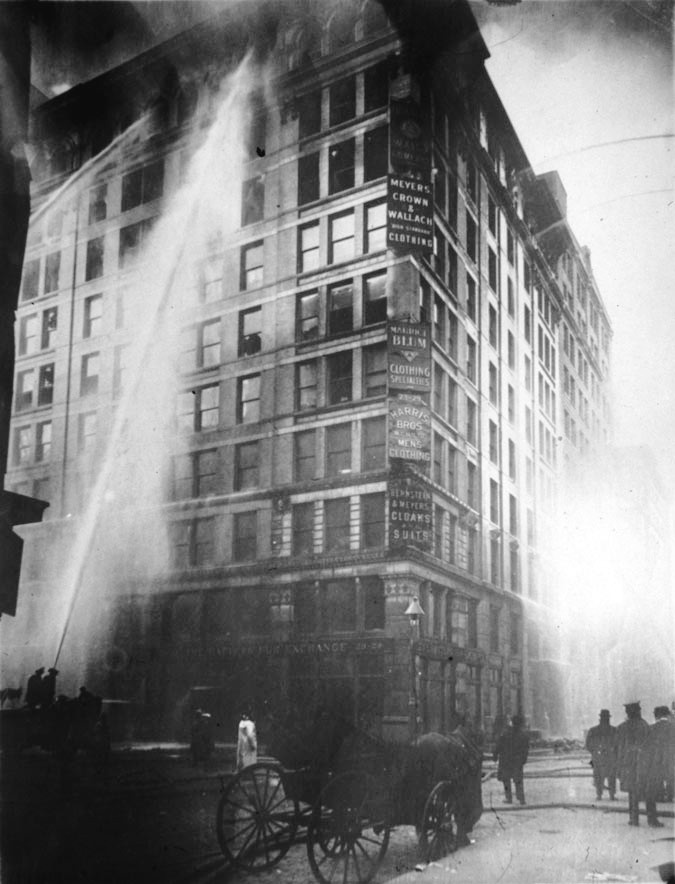Out of the Bangladesh tragedy may come global worker solidarity

By Joe Atkins, Labor South
The horrible tragedy at the Tazreen garment factory in Dhaka, Bangladesh, may become a milestone in the development of true global solidarity among workers.
Red banner-waving garment workers protested in the streets of Dhaka after the Nov. 24 fire that killed 112 of their colleagues. The factory, which serves major Western corporations like Walmart, Sears, Disney and Sean Combs' Enyce, had no fire exits for the trapped workers in the fire.
Some political leaders in Bangladesh -- where organized labor is weak and labor organizer Aminul Islam was murdered earlier this year -- have tried to blame the fire on arson and sabotage, but workers and their defenders know better.
Groups like the International Labor Rights Forum and the Workers Rights Consortium have called for a full-scale investigation.
The role of Walmart and other major corporations is also under scrutiny. Although the giant retailer has tried to distance itself from the factory and the incident, Bloomberg News and other news organizations have already turned up reports and documents indicating a third of the production lines at the Tazreen factory were committed to Walmart and that suppliers did business there this year.
Furthermore, reports show Walmart led other corporations in opposing a 2011 measure that would have made corporations responsible for funding better safety measures in the sprawling South Asian garment industry, a $20 billion industry in Bangladesh alone.
The tragedy evoked memories of the 1911 fire at the Triangle Shirtwaist factory in New York, which took the lives of 146 workers. Most of them were young women. They were trapped inside a building where the doors were impossible to open, and thus they were forced either to die a fiery death or jump from as high as the ninth floor to the street below. Eighty years later, a similar fire broke out in the Imperial Foods Products plant in Hamlet, N.C., killing 25 and injuring 40 or more.
The Tazreen factory fire and subsequent protests come on the heels of nationwide protests against Walmart here in the United States. Hundreds of Walmart workers went on an unprecedented strike against the virulently anti-union, Arkansas-based company on "Black Friday" the busiest day of the year for many retailers.
An earlier strike by warehouse workers at a Walmart-affiliated firm, Inland Empire, in California won a rare concession from the company to improve job safety. That strike was supported by warehouse workers from as far away as Korea and Chile. A similar strike took place in Illinois.
Corporate Action Network and OUR Walmart, groups that aided workers in the "Black Friday" protests, have expressed solidarity with Bangladesh workers.
Global solidarity among workers is the only way to meet the challenge of today's global economy and the neo-liberal principles that govern it, a philosophy that promotes transnational business deals at the cost of a relentless search for cheaper labor and fewer governmental restrictions.
The U.S. South knows all about that race. The garment and textile industries now spread across South Asia used to call places like North and South Carolina home.
However, workers around the world are waking up and seeing beyond their cultural and language differences to what they have in common.
The landmark protests by members of the International Longshoremen's Association against a union-busting Danish firm in Charleston, S.C., in January 2000 -- termed the "first major labor battle of the Twenty-first century" by Clamor magazine -- was ultimately successful in part because of the refusal by dockworkers in Spain and elsewhere in Europe to load the firm's ships until a contract was negotiated with the ILA.
More recently, the United Auto Workers has been working closely with union leaders in Brazil and other countries, sponsoring student and activist meetings, exchanges and other programs that help instill a sense of the workers rights' cause as a true and just civil rights movement for today.
Tags
Joe Atkins
Joe Atkins is a professor of journalism at the University of Mississippi and author of "Covering for the Bosses: Labor and the Southern Press." A veteran journalist, Atkins previously worked as the congressional correspondent with Gannett New Service's Washington bureau and with newspapers in North Carolina and Mississippi.
